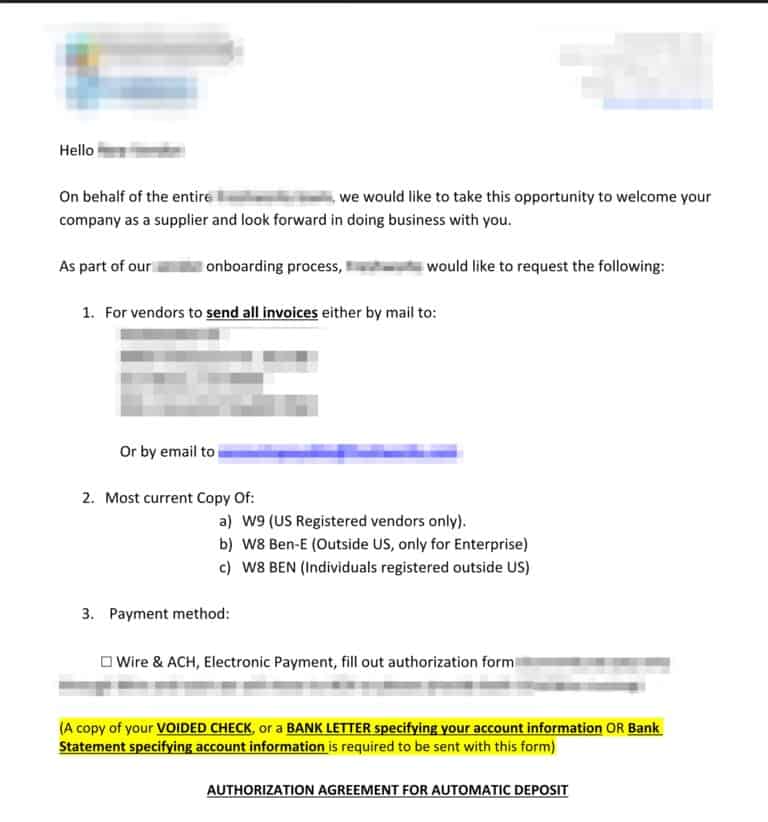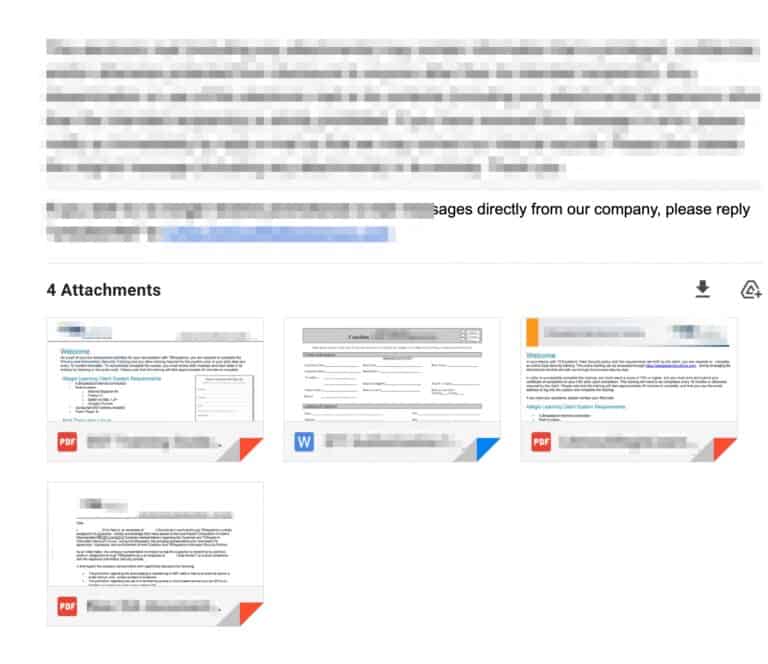Over the years of freelance writing, I’ve come to know how important it is to have a freelance writing contract. Why?
Because of dodgy clients.
They often ruin your day, week, or month.

Don’t be fooled by other names given to them: scope-creeper, dodgy dancer, the micro-managing monster, or the late payer.
Crappy clients are everywhere and it takes experience to spot them before you decide to work with them.
Luckily for you, there’s an easy way to protect yourself from bad clients who may walk all over you because you are new to freelance writing. So what is it?
It’s the freelance writer contract.
A legit and professional freelance writing contract can help you weed out the cheapskates and companies who don’t value writers.
To help you out, I have a freelancer agreement sample and template for you to check out as well as resources on creating your own writer contract!
Check out my Youtube on bad clients you definitely don’t want to have!
What is a Freelance Writing Contract?
A contract for freelance writers is a document (or legal document from a lawyer) that details the service you will provide for the company or person hiring you. It will state the terms and conditions like a kill fee or revision rounds and will provide the compensation for your work (blog writing, white paper writing, etc.).
A client may term this as a letter agreement or letter of agreement. This is the same as a contract.
A freelance contract typically comes from the client or the company who hired you.
Some companies have an onboarding client form.
This details basic information such as invoicing and forms to fill out for local and international writers.
Here is an example of a freelance writing contract template that I received from a freelance client.
Sample Template for a Freelance Writing Contract

Other companies give you many contract forms to fill out as well as access to a 3rd party management software program to finish the contract. For another freelance writing job, the client gave me this contract for writing.

The writer – you – can also supply a freelance contract letter of agreement but make sure it’s a legal binding one from a lawyer.
Why Are Contracts Important for Freelance Writers?
*note: I’m in no way a lawyer. Please seek legal advice for drafting a written contract
You’ve sent pitch after writing pitch and finally you hear back.
You hash it out and now you have a freelance writing job!
I’m sure you’ve read about it or heard from others, that whenever you are working with someone new, to “get it on paper.” Even if that someone is a friend or family member.
What is it? It refers to what you and a prospective client has agreed to during the interview process.
Just shaking hands on it won’t give you peace of mind when it’s a new month and you still haven’t gotten paid for the work you’ve done the previous month.
So, why is it important to to have writing contracts for freelancers?
- It protects you if the client decides to ditch you and your content.
- Helps you avoid any misunderstandings or communication glitches you may have, before you begin a collaboration with a client.
- It shows that you are a professional and you mean business when you present a contract to a client.
- It helps in getting paid (but not all the time. There are still people that will take advantage of you and not pay you for your work. Having a contract, however, helps lesson this chance).
So why don’t many freelance writers (including myself) have a contract when they first start?
For me, I’m in the process of drafting a freelance writer contract for future collaborations with local businesses and for online companies.
Up until this point though, I didn’t have a contract, but that doesn’t mean I didn’t sign any.
Currently, I’m under my clients’ contracts for any services I preform. These clients hire many freelance writers and journalists so it’s nothing new for them to hire a writer.
There are other reasons why new freelance writers might not use a contract:
- They feel the writing project is minuscule and doesn’t require a legal contract
- They don’t know how to draft a contract
- They think if they worked with family or friends they don’t’t need a contract
Whatever the case is, not having a contract in place is a HUGE risk to you.
Your chances of getting screwed by a scope-creeper or a micro-managing monster is greater when there’s nothing in place.
What’s to stop a client from paying you right away? Since there’s nothing in writing, he could wait years before paying you.
So, if you don’t want to get walked all over, consider putting a contract or freelance writing agreement together.
Here are 7 crystal clear clauses you can put in your freelance agreement.
Key Elements of a Freelance Writing Contract
Realize that when drafting up a contract, it is using confidential information.
This is to help you with writing a freelance contract.
If you don’t want to create your own contract (and I advice you don’t since it’s not legally binding), consider purchasing a freelance contract agreement.
I use Mariam’s legal contract as she is a freelance lawyer and a course student of mine!
1. The Scope of Your Work Clause
When you start freelance writing, you might run into the scope-creeper.
To tame the scope-creeper, determine specifically what services you will do for the client.
This is your chance to make it clear to the client what services you will perform.
Your clause can mention work outside of this scope, but it requires a new contract with new rates.
For example, you should mention:
- Effective date to begin services
- Length of time for services (if the client doesn’t have an end date, you can specify an indefinite period of time)
- Itemized list of services to be preformed (blog post of set amount of words based on a topic choice you or the client chooses, revisions, fact-checking and research and anything else like social media marketing, newsletter creation etc…)
Also mention the nature of your work. What I mean is to make it clear that all work you create is original and that you are the sole author.
It’s also a good idea to mention that any stats or resources you do use are, to the best of your knowledge, accurate and truthful and that it doesn’t infringe on any copyright or privacy rights.
The scope of work is contingent on what you and the client agrees to.
It’s wise for a freelance writer to write everything down when interviewing the client to get a better picture of what they want.
Moreover, it’s a good idea to send an email re-hashing what you discussed before you write your contract in order to get all the facts straight.
2. Ownership Clause
It’s generally understood that companies you end up working with, will have complete ownership to your work once you are paid.
In North America, this is referred to as a, “Work-for-hire” agreement. A freelance writer, once paid, will give up all ownership to their content.
It makes sense to give up ownership to your content when you receive payment.
I mean, if I hire and pay a contractor to re-model my kitchen, I don’t expect him to come back years later and demand his counter tops and cupboards back!
The kitchen and the work done to the kitchen is mine. And it’s the same for your content.
What’s of concern for freelance writers like myself, is having recognition for the work we do. We want to be able to add to our portfolio at the same time as having our brand reach new customers.
The best thing to do is approach your client and ask them about having an author byline or author name on your content once it’s published.
If you two agree, then put it in writing.
3. Payment Terms and Conditions Clause
For freelance writers, state your rate and how often you will be paid (weekly, bi-weekly, monthly, every 30 days etc…) when drafting a contract for freelance writing.
Also mention how clients can pay you (PayPal, direct deposit etc..) and the turnaround time from when you submit your invoice to getting paid.
Other terms you can mention in your contract:
- Whether or not you require an upfront fee before beginning any work. This is usually between 20%-50% of your rate.
- Protocol for late payments. For example, you might include a 1.5% interest amount per month for late payments. Having interest accrue is enough incentive for many clients to pay on time.
- Rush job payment schedule. You may have a %50 upfront fee for rush jobs.
It’s wise to also state if the work requires more time or if there are changes to be made, that renegotiation occurs and a new rate and clause is drafted.
4. Revisions Clause
You might want to specify what is entailed for your revisions and how many revisions you will do. Also mention what editing tools you will use, how you will check your facts and any research you will do.
Some clients may not comprehend what you do when you revise your content, so having a clause can help alleviate any concern your client may have.
5. Deadline Clause
It’s important to state when the deadline is for submission and what the turnaround time is for revisions. Sometimes clients start with 1 blog post a week and then move up to 2 or 3 posts a week.
If this is the case, state this in your contract so that you won’t be surprised when your client asks for 3 posts in one week.
6. Early Termination Clause
Clients can change their minds about contents for the writer/freelancer and terminate their services without any notice.
If this should happen most likely you’re left trying to fulfill another job so you won’t be late on your month’s rent.
To protect you from this happening, have a per-determined dollar amount a client pays should they ditch your services for someone new. This amount is usually %20-%50 of your agreed payment for your content. Some freelance writers require %100 of payment for work they have done regardless if the client ends services early or later.
7. Independent Contractor Clause
It’s a good idea to make sure the client is aware that you’re an independent contractor, not an employee. When you’re an independent contractor you are responsible for all federal, state and/or local taxes when preforming services for your clients.
When It Comes to Contracts: K.I.S.S
So before you write your contract for freelancers remember to Keep It Simple Simon! (K.I.S.S). Write it out in plain language or if that’s not your thing, send an email detailing what you and your client agreed to and have them email you back with an approval.
At least it’s on paper and you have documentation to back you up, should you need it.
While I’m still in the process of framing my contract, I can’t give you my sample, but I can direct you to some sample freelance contracts I found useful when researching for this post!
Freelance Writer Contract
Freelance Writer Agreement – Politico
Sample Freelance Writer Agreement – KSPress
Freelance Contract Template – Pandadoc
You can also try the Freelancers Union contract creator.
This is through Fiverr and it’s a paid option.
For more help on contracts, make sure to check out the National Writers Union.
How to Enforce Your Freelance Writing Contract
What happens when a client doesn’t follow the contract you gave them or the one they gave you? If they aren’t holding up their end of the agreement her are three things you can do.
Realize though, if your contract isn’t legally binding, there isn’t much you can do except point out the problem and wait for a response.
1. Keep Detailed Records
It’s a good idea once you onboard a client that you keep a record of:
- Email correspondences
- Invoices
- Writing guidelines
- Content briefs
- Contracts/agreements
Having a “trail” will help with any disputes that might occur.
2. Issue a Formal Notice
This can simply be an email detailing the specific breaches, referencing the contract clauses you wrote out (or they gave you), and give a deadline to speed up resolving the issues at hand.
If you need help, here’s a formal notice template you can use:
[Client’s Name],
I hope everything on your end is going well. I’m writing to you to let you know of specific breaches in our freelance writing contract, dated [contract date signed].
These are late payment and increased scope of work.
- Late payment (Clause 3.1): As per the contract, payment was due within 30 days of invoice submission. However, invoice #023 submitted on (Invoice date) and I have yet to be paid.
- Increase Scope of Work (Clause1.3): The clause specifies I’m responsible for blog post writing, but you have added meta descriptions and keyword analysis. These are beyond the scope of work detailed in our contract.
Please send over payment within the week and I’d be more than happy to discuss adding more services to the clause so that we are all on the same place.
Let me know your plan,
[Name]
3. Consult a Legal Professional
If this fails then consider legal help.
Consider using the lawyer who helped you form your freelance contract or befriend an online freelance lawyer!
There are people who can help.
More Help On Your Freelance Writing Business
If you need more help setting up your business like getting an LLC, taxes and managing your money, I highly suggest you pick up The Money Guide for Freelance Writers.
It was written by Alexis Grant (from The Write Life) and her accountant dad!
This is the end to my series. I hope you found this information useful.
So for experienced freelance writers, do you find having a contract in place beneficial?
Do you notice that you deal with a lot less crappy clients?






27 Comments